Life
Sign up for our newsletter
We summarize the week's scientific breakthroughs every Thursday.
-
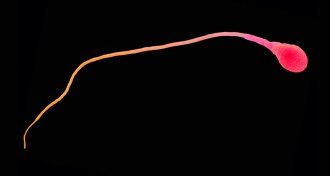 Health & Medicine
Health & MedicineHow dad’s stress changes his sperm
Stress may change sperm via packets of RNA in the epididymis, a mouse study suggests.
-
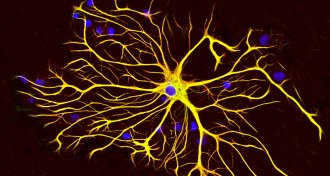 Neuroscience
NeuroscienceThe brain’s helper cells have a hand in learning fear
After a traumatic experience, rat brains release inflammatory signals that come from astrocytes, suggesting a new role for the brain’s “helper” cells.
-
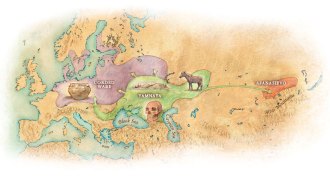 Archaeology
ArchaeologyHow Asian nomadic herders built new Bronze Age cultures
Ancient steppe herders traveled into Europe and Asia, leaving their molecular mark and building Bronze Age cultures.
By Bruce Bower -
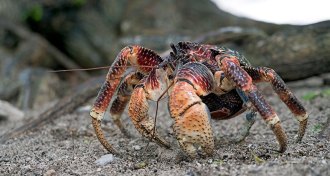 Animals
AnimalsCoconut crabs are a bird’s worst nightmare
A biologist witnesses a coconut crab taking out a blue-footed booby and documents the balance of the animals in an Indian Ocean archipelago.
-
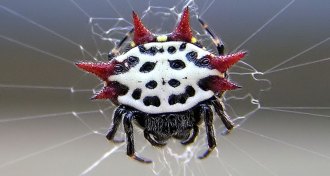 Animals
AnimalsThese spiders may have the world’s fastest body clocks
Three orb-weaving spiders may have the shortest circadian clocks yet discovered among animals.
-
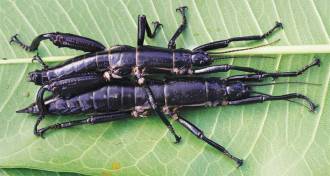 Animals
AnimalsThe Lord Howe stick insect is officially back from the dead
New genomic sequencing confirms that stick insects discovered near Lord Howe Island are the assumed-extinct Lord Howe stick insect.
-
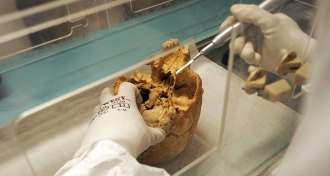 Anthropology
AnthropologyAncient European farmers and foragers hooked up big time
Interbreeding escalated in regionally distinct ways across Neolithic Europe.
By Bruce Bower -
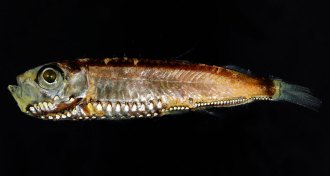 Animals
AnimalsThis deep-sea fish uses weird eyes to see in dark and light
The eyes of deep-sea fish called pearlsides contain cells that look like rods but act like cones.
-
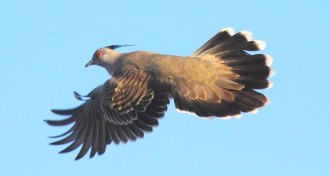 Animals
AnimalsCrested pigeons sound the alarm with their wings
Crested pigeons have specialized feathers that signal danger when they flee from an apparent threat.
-
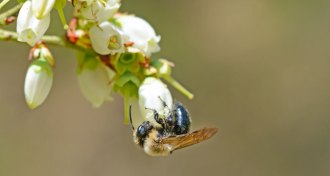 Animals
AnimalsHoneybees fumble their way to blueberry pollination
Blueberry flowers drive honeybees to grappling, even stomping a leg or two down a bloom throat, to reach pollen.
By Susan Milius -
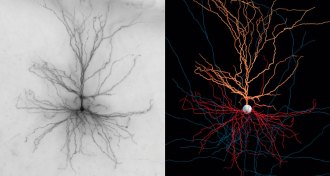 Neuroscience
NeuroscienceSee these first-of-a-kind views of living human nerve cells
A catalog of live brain cells reveals stunning diversity and intricate shapes, and may help scientists understand the abilities of the human brain.
-
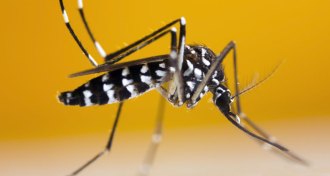 Animals
AnimalsEPA OKs first living pest-control mosquito for use in United States
Feds approve non-GM male tiger mosquitoes for sale as fake dads to suppress local pests.
By Susan Milius